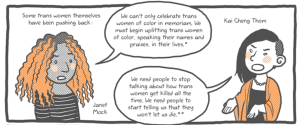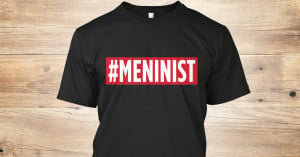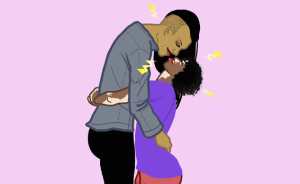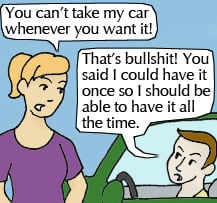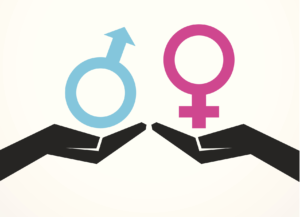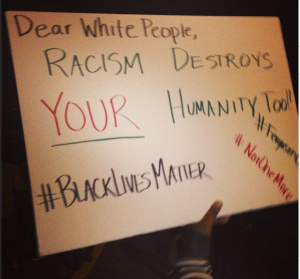
Source: Change from Within
Originally published on Change from Within and cross-posted here with their permission.
White people, we face a choice.
We can choose to continue to invest in White supremacy and in doing so, surrender our humanity.
Or we can choose to divest from Whiteness.
You see, Whiteness is not our skin color. Whiteness is not “stuff White people like.” Whiteness is not our families or our culture.
Whiteness is a system that was created by people who look like us for the sole purpose of consolidating power in the hands of a few.
Whiteness is the system that has, for hundreds of years, instilled in us the ideology of White supremacy to keep our people from investing in common struggle with people of Color.
Whiteness and White supremacy are at the same time not real — total social constructions — and completely real, as they inspire us to take up for a system that dehumanizes everyone.
Whiteness is the system that ensures that when a White man guns down an unarmed Black teen in the street, there won’t even be a trial, and we will defend it behind keyboards and white sheets.
Whiteness and White supremacy dehumanize everyone.
Of course, Whiteness and White supremacy do not dehumanize me in the ways that they dehumanize people of Color. That is a dehumanization we can never understand.
But as I look at the vile racism and White supremacy splashed across my social media feeds tonight, I hurt out of empathy for the parents of every Black child in this country.
But my hurt is also more than that. I hurt because I also see what racism does to us, what it does to me and those White people I love.
Racism robs us of our ability to feel, to empathize, to hurt in the face of injustice.
Without those things, are we still human?
Whiteness dehumanizes us as it demands that we give up that part of ourselves that should have said “This is wrong” when the “no indictment” verdict came back.
I posted a tweet last night that made a lot of White people mad:
But it’s true. This is not hyperbole. Maybe you don’t consider yourself a White supremacist. Maybe you even believe you’re “colorblind” (excuse the too-common, ableist term).
But in the words of W.E.B. Du Bois, “A system cannot fail those it was never meant to protect.”
So when you defend this system and its decision that so blatantly devalues Black life and protects the interests of Whiteness, you defend White supremacy. And in doing so, you sacrifice part of your humanity.
We face a choice: continue to invest in that which dehumanizes everyone or stand on the side of justice, and in doing so, risk regaining our humanity.
What Are You Willing to Give?
When I was in Ferguson and St. Louis last month, the refrain about White people’s role in this movement was clear.
One Black elder put it this way: “It’s great that you’re in the streets and all. There are a lot of White people here at this march. But at the end of the day, what are you saying to engage the person wearing the ‘I Am Darren Wilson’ t-shirt? What are you doing to engage White people who would never come out here? That’s what we need you to do.”
This sentiment was expressed by nearly every person of Color I talked to: White people, get your people.
In by far the most powerful of these conversations that I had while in Ferguson, my friend Arielle from the brilliant Black Millennial Musings stressed that White people have to be willing to sacrifice by divesting from Whiteness and by calling in our own people if we are going to ever truly act in solidarity.
In short, we have to ask ourselves this: What am I willing to give? What am I willing to give up?
Are we willing to give of our energy, our time, our heartfelt passion to engage other White people in ending White supremacy?
Are we willing to give up our silence that so protects us and shields us and showers on us the privileges of Whiteness? Are we willing to stop paying the wages of Whiteness and regain our humanity?
What are we willing to give? What are we willing to give up?
It’s Time to Choose
The movement in Ferguson stands as but one iteration of a movement, one that is not going away. This movement is led by young Black, Brown, Asian, Arab, and Indigenous youth from Palestine to Tibet to Paris, New York, and Ferguson. This movement is led by the youth that our economy and its “recovery” were never built for.
This movement is led by young cisgender and Transgender men and women and gender non-conforming people. This movement is led by Queer youth, and it’s led by youth with every ability and disability in this human experience.
And this movement demands that we as White people choose.
We are no longer offered the choice of silence. In fact, we never were. Silence is consent in a system of White supremacy. We simply fooled ourselves into thinking our silence protected us from complicity.
We can choose to continue investing in the systems of Whiteness and White supremacy.
Or we can choose to divest from Whiteness and its poisonous ideology.
But we have to choose.
4 Ways We Can Choose to Divest from Whiteness and White Supremacy
1. Lend Support (Financial or Otherwise) to Those Leading This Movement
Do it right now.
Send a paypal donation in whatever amount you can afford to [email protected], or donate to Lost Voices through their website.
2. Show Up
As a dear friend Lex recently pointed out, if we show up to the tune of 10,000 for an Internet cat video festival, we surely can show up in the streets for justice. Lex put it this way this morning on social media:
“If you don’t usually go to rallies or protests, and your body is able to, I invite you to call up some courage today and join a beautiful crowd of people calling for justice. Being in the streets together is powerful, it’s healing, and it’s what we have to do in response to racism, injustice and violence.”
3. Act: Engage in Systems Change That Holds Police Accountable for Racist Violence
For those of us with access (as a result of wealth or connections), there is a need to press mayors, city council members, alderman, police chiefs, public prosecutors, and other local power holders for change.
When they ignore you (and they likely will), keep contacting them. Set up meetings, and email them regularly.
When you reach out, here are a few specific, measurable things you can call for:
Demand Police Body Cameras
We live in an age that allows incredible surveillance of police behavior for accountability purposes, but only a small minority of police forces prioritize the technology for this accountability.
Body cameras, a simple and inexpensive addition to the police uniform, have been found to reduce incidents of excessive police force by as much as 50% where used.
Costing as little as $199 per officer (plus hosting and transmission costs), this not only can reduce the violence committed and protect citizens from violence, but it can protect police who are doing their jobs legitimately.
Plus, limiting police brutality also ensures that cities don’t need to pay out millions in settlements in civil suits, so if you’re talking to someone who values tax savings over considerations of human life (yes, they exist), you can show how cameras actually save tax payers money.
Demand Accountable Civilian Review
Having cameras and accountability procedures is ineffective unless there is a legitimate and empowered civilian review authority with actual teeth to hold police accountable.
After all, when footage from body cameras or dash cameras is held and stored by police, it’s far too easy for footage to conveniently disappear (“Oh, that camera was malfunctioning that day”) when there’s an incident of police violence.
Thus, if your city doesn’t have a civilian review authority with actual teeth, demand one. The local police union will fight to ensure it is ineffective, but civilian review from members of the community most affected is a powerful tool for change.
Demand Independent Police Liability Insurance
Currently, city governments are on the hook financially when their police officers brutalize citizens, yet police unions are powerful enough that local politicians rarely hold police accountable.
However, insurance companies that care about their bottom line would have no problem holding police accountable when they abuse their authority.
Thus, a simple thing to demand in your municipality is for police to be required to pay for their own liability insurance as a condition of employment in the police department.
If they brutalize citizens and end up losing a suit, the insurance companies will make it quite expensive to hold insurance or will drop the officer completely, thus ensuring that the person can no longer be employed as a police officer in your city.
Simply put: Hit them in the pocketbook to hold police accountable. Learn about the movement in Minneapolis to require police to purchase their own insurance.
4. Break the Cycle of Socialization That Passes White Supremacy Down Throughout Our Generations
When you gather for a meal, call your family in to discuss the ways we are complicit in racism. And engage them in talking about what we can do about it.
This means that we can’t just act like we’re the “best White person” and callously call out those White folks in our families who say racist stuff (no matter how good that may feel).
We have to choose the “less disposable way of holding each other accountable” by calling one another in to realize change.
***
Whatever it looks like, we have to choose to divest.
For if we don’t, we risk further distancing ourselves from our own humanity in order to gain the simple privileges of this system that benefits us in so many other ways.
[do_widget id=”text-101″]
Jamie Utt is a Contributing Writer at Everyday Feminism. He is the Founder and Director of Education at CivilSchools, a comprehensive bullying prevention program, a diversity and inclusion consultant, and sexual violence prevention educator based in Minneapolis, MN. He lives with his loving partner and his funtastic dog. He blogs weekly atChange from Within. Learn more about his work at his website here and follow him on Twitter @utt_jamie. Read his articles here and book him for speaking engagements here.
Search our 3000+ articles!
Read our articles about:
Our online racial justice training
Used by hundreds of universities, non-profits, and businesses.
Click to learn more






